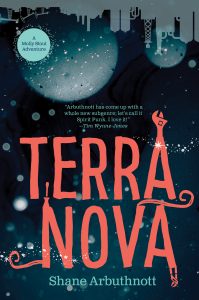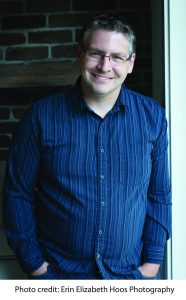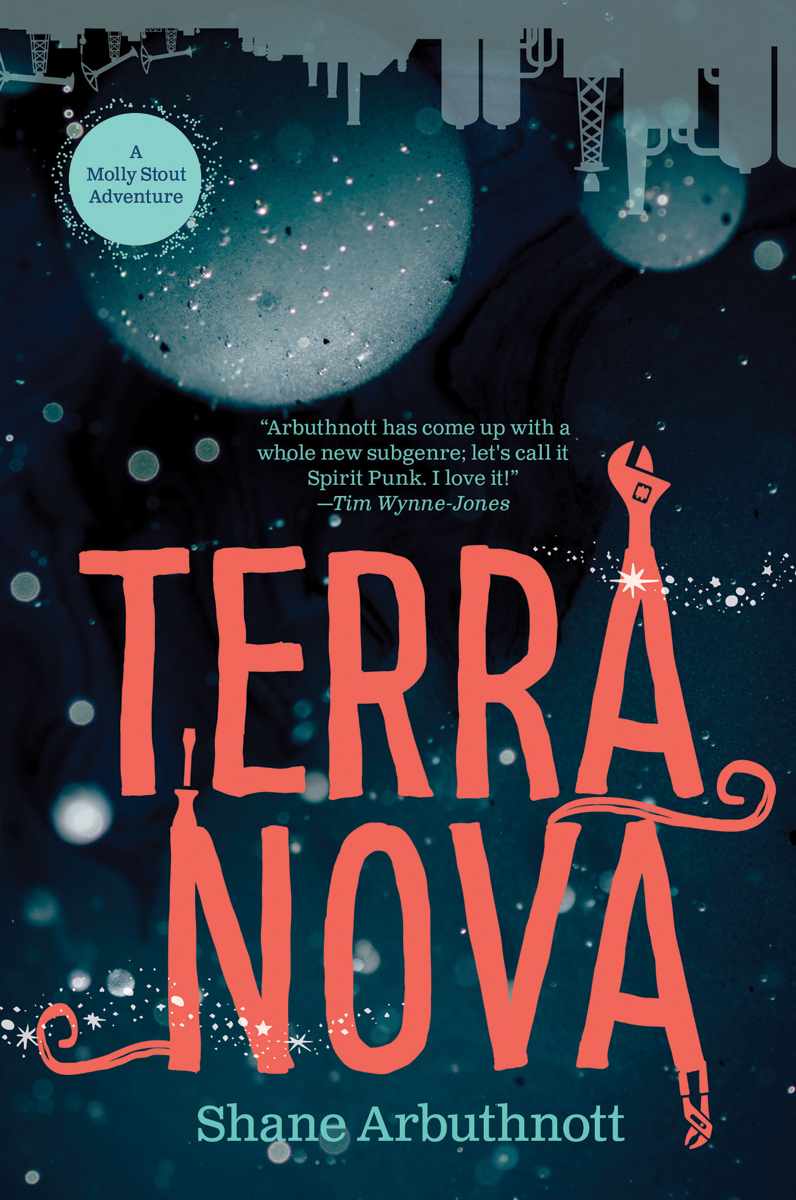The city of Terra Nova was founded on a lie: that the spirits who cross over from the spirit world are evil and must be captured for the safety of humanity. But Molly Stout and her family have learned that the spirits are thinking, feeling beings, enslaved to enrich the wealthy, especially the spirit-harvesting company Haviland Industries and its founder, Charles Arkwright.
With the help of her family and the aetheric spirits Ariel and Legerdemain, Molly has been fighting to free the spirits. But Terra Nova runs on spiritual machinery, and for each factory they shut down, another takes its place. As Haviland Industries and the authorities of Terra Nova tighten their nets around Molly, she begins to question whether she is really making any difference or if her rebellion puts people and spirits at risk.
Terra Nova is the sequel to Dominion.
What planning and research did you do for you book?
Much of the research and planning was done for the first book. The largest amount of research went into Wîskacân, the new Innu character in the book–the first glimpse we see of what’s up with the interior of North America in this world. I wanted to get the representation right, so I sought out books and websites written by Innu themselves before writing him. I learned lots of wonderful things about the Innu, and only got to use a tiny fraction of them.
What is your ideal writing environment?
I have dreams of someday carving out my own perfect writing nook in my home, but for now I have to stay flexible. Half of Terra Nova was written in a busy coffee shop, and the other half at my kitchen table, computer perched between stacks of plastic dishes. I guess the commonality there is that I have coffee available. Maybe that’s my ideal writing environment: inside a giant cup of coffee.
How do you decide on names for your characters?
For the main characters, I decide on the cultural background of their family, and try to find names that fit based on that history.
Do you ever get writer’s block? What do you do to overcome it?
Sometimes long walks get my brain going again when I’ve tied my ideas in knots. Sometimes talking out a problem with my wife helps. If I can combine the two, it’s perfect.
What was the last novel you read?
I just finished Rex Zero, the Great Pretender by Tim Wynne-Jones. The Rex Zero books are great, and Tim has a fantastic ability to make large groups of characters distinct and believable, even when you only see them a couple of times. I wanted to look again at how he did it, because the book I’m working on right now has a larger cast of characters than I’m used to.
Do you remember your dreams? Do they ever become inspiration for your writing?
The first novel I ever wrote came from a dream I had. It was also a very bad book, but it led to better ones.
In an alternate universe, what would your dream career be, other than a writer?
Do you have a secret or unlikely talent?
I can juggle! For about ten seconds.
What types of conversations do you hope will come out of your book?
I’m going to stay mum on this one—there are lots of things I hope people will get out of the book, but I think it’s best to let readers decide for themselves what to take away from it.
 Shane Arbuthnott grew up in Saskatoon, Saskatchewan, and now lives in southern Ontario with his family. Dominion, his debut novel, was released in 2017. His short fiction has appeared in On Spec and Open Spaces. When he is not writing, he can be seen chasing his three adventurous children, trying to convince them to eat green things. For more information, visit shanearbuthnott.com.
Shane Arbuthnott grew up in Saskatoon, Saskatchewan, and now lives in southern Ontario with his family. Dominion, his debut novel, was released in 2017. His short fiction has appeared in On Spec and Open Spaces. When he is not writing, he can be seen chasing his three adventurous children, trying to convince them to eat green things. For more information, visit shanearbuthnott.com.

